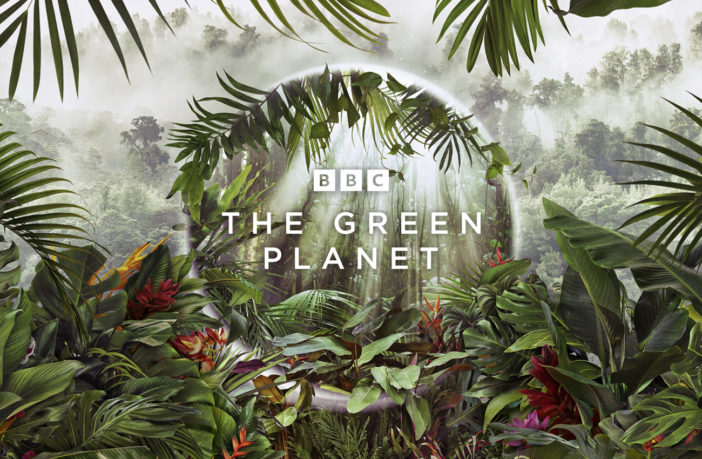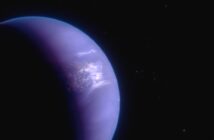Legendary nature historian, Sir David Attenborough will offer a stunning insight into Earth’s plant life in a new series co-produced by the BBC and The Open University.
The first episode of the five-part series, The Green Planet, airs on 9 January at 7.00 pm on BBC One and will be available on BBC iPlayer shortly after.
The programme follows David Attenborough on a journey throughout the world, beginning in the rainforests of the tropics and continuing onwards to scope remote deserts, underwater worlds, and the wilderness of the frozen north.
Through a series of mysterious worlds and climates, The Green Planet makes use of the latest research to illustrate the crucial role that plants play and their competitive and defensive nature in our ecosystem.
Dr Julia Cooke, Senior Lecturer in Ecology at The Open University and academic consultant for Green Planet, commented on the university’s role in the programme and the research used to create it:
“It was a pleasure to contribute to The Green Planet, which beautifully presents extraordinary plant stories. By highlighting recent advances in plant ecology from our own research fields and by using our teaching experience to identify footage for plant science education and explain complex ideas effectively, I hope we helped the production team show everyone just how fascinating, charismatic and impressive plants are.”
Dr Caroline Ogilvie, Head of Broadcast and Partnerships at The Open University, also highlighted the new and exciting studies used within the series and their significance:
“Our world depends on plants and these extraordinary programmes enable us to explore our green planet by revealing new insights to help us better understand this vital part of the natural world. The Open University is delighted to be co-producers and provide academic expertise on such a timely and important series.”
The Green Planet makes use of new technological developments to truly uncover the natural world around us. Robotics, thermal cameras and moving time-lapse photography help to create a stunning visual experience for viewers and fully explore plant life.
Julia described the focus of the series and how this brought to life the world of plants:
“In The Green Planet, depictions of plant traits and strategies showcase how plants have evolved to survive and thrive in diverse environments – from deserts to underwater. The series impressively depicts how plants use different strategies as solutions to the same environmental challenges. Wonderful time-lapse photography and interactions between plants and animals show incredible plant strategies in action.
“The Green Planet demonstrates that plants are much more than a green backdrop, by showing their exciting lives through spectacular sequences, highlighting how much animals (including us) depend on plants, and that many ecosystems now need our protection.”
Rupert Barrington, Series Director for The Green Planet, said:
“Making this series was a special opportunity to bring the wonders of a little-known, but critical, part of the natural world to a global audience. The combination of new scientific discoveries and new filming technology allowed us to take the viewer on a journey into a hidden, parallel world that exists all around us.
“Working in partnership with The Open University brought vital academic insight and rigour to the process.”
The BBC premiered the new natural history series at Glasgow’s Pacific Quay IMAX, on the eve of the city hosting COP26, where OU Observers were in attendance to help inform the university’s plan for sustainability.
As part of its commitment to tackle climate change, The Open University has launched a suite of microcredential short courses focusing on environmental sustainability. Delivered on the OU’s co-owned social learning platform, FutureLearn, these short courses will equip learners with the knowledge, skills, and courage to respond to the climate and ecological crisis, whatever their level, role or sector, and wherever they are in the world.
To accompany the series, Broadcast & Partnerships has produced a free poster exploring the critical role plants have on our planet. Copies are available by calling 0300 303 4200 or visiting our broadcast site.
(NB: the poster may not be available prior to broadcast)
This series was commissioned by Broadcast & Partnerships and is supported by the faculty of Science, technology, engineering, and mathematics, with particular relevance to Q52 | BSc (Honours) Environmental Science, R16 | BSc (Honours) Geography and Environmental Science, and Q64 | BSc (Honours) Natural Sciences (Biology).
- Commissioned by Dr Caroline Ogilvie, Head of Broadcast & Partnerships
- Academic Consultants: Prof. David Gowing, Dr Julia Cooke and Dr Yoseph Araya
- Media Fellow: Dr Julia Cooke
- Broadcast Project Manager: Matthew Ray
- Broadcast Platforms and Public Engagement Manager: Chris Belson



